HAUWA’u Adamu, a 30-year-old pregnant mother, had modest expectation from the Dogon Jeji Primary Health Centre when she enrolled for the antenatal routine. She looked forward to obtaining basic healthcare support and service through her maternity period.
But the local health facility has only one volunteer midwife who attends to an average of 60 pregnant women every day. Some of the women come from neighbouring Jigawa State. It is a tough call for the middle-aged nurse and even tougher for her patients.
“Sometimes seeing the midwife does not guarantee treatment or remedies to your health challenges; you can see her and end up going home without any medicine,” Adamu told this reporter.
There are hardly any drugs in the health centre to dispense to patients.
Umma Sani, a 35-year-old mother suffering from High Blood Pressure, told The ICIR that she made several visits to the General Hospital Bayara, only to hear the same words each time – “the doctor is not on seat”.
“They either tell you to come back tomorrow or next week to see a doctor, and there is no assurance that if you come back the next day, you will be lucky that the medical doctor sees you,” she said.
The ICIR checks show that the only medical doctor in the General Hospital is Dr Mohammed Maaji. For most patients, seeing him is an ultimate accomplishment. Umma’s major worry is that her several attempts to meet with the doctor have been unsuccessful.
“You will come very early in the morning, join a long queue, and if you are not lucky, the doctor may not even see you. Before it’s your turn, the doctor might have been exhausted and you will be asked to come the following day. So, you (would) have wasted the whole day without getting any attention irrespective of the kind of illness you may be suffering from,” she lamented.
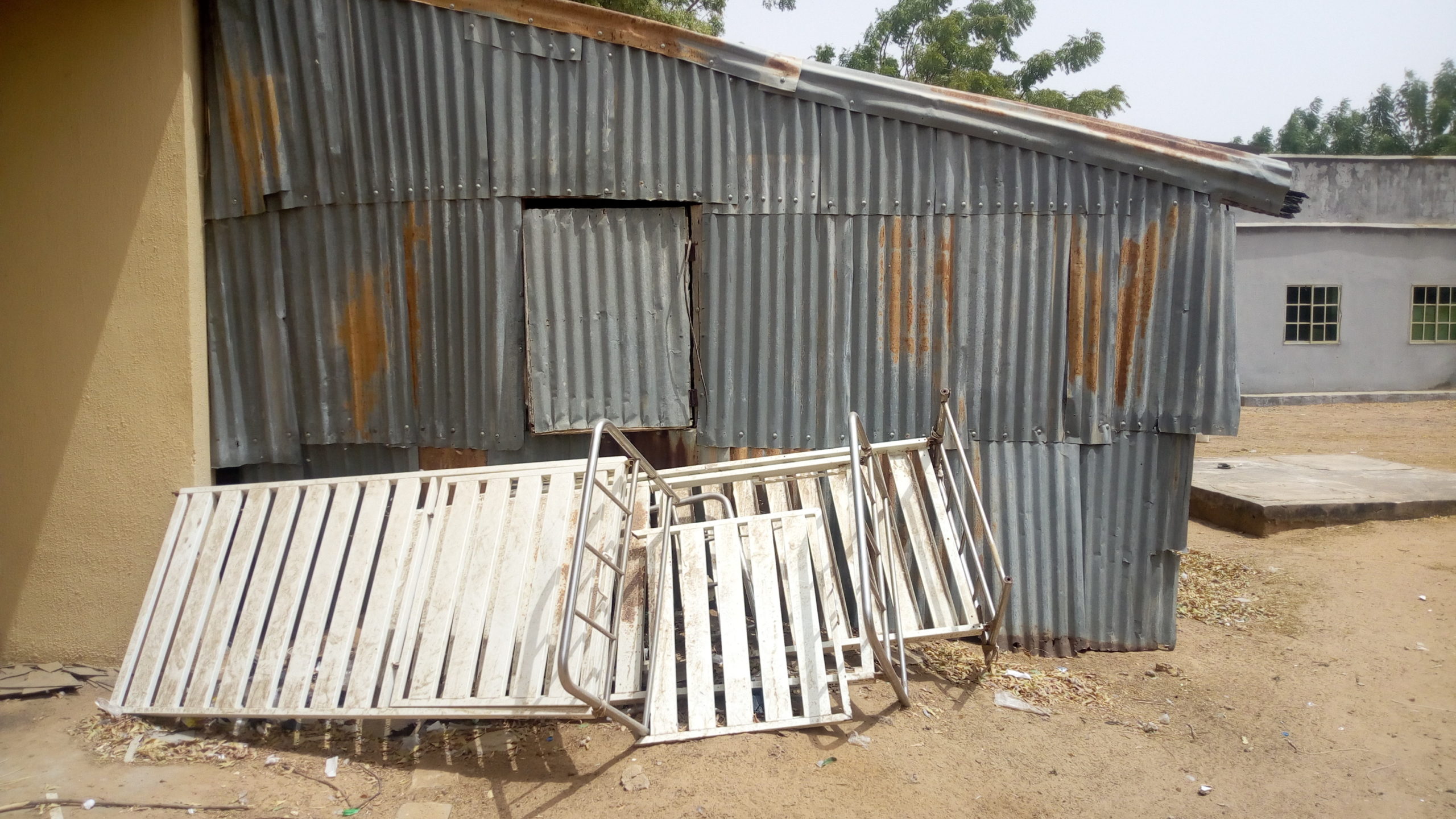
Health care system in rot
Investigations by The ICIR revealed that Jama’are, a local government in Bauchi state with approximately 176,075 people as at 2018, has only 2 medical doctors and 21 nurses working in the general hospital, the other 29 public health facilities and three private clinics in the area are poorly staffed.
In contrast, the Bauchi Local Government has 113 health care facilities, of which 105 are government-owned, while eight are private clinics. There are 83 doctors spread across the 105 government facilities, which serve an estimated 737,575 people, according to the National Population Commission report of 2006.
Two tertiary health facilities in the state, the Abubakar Tafawa Balewa University Teaching Hospital and the Bauchi State Specialist Hospital currently attending to 20,700 and 18,750 patients, have only 37 and 25 doctors, respectively.
In Darazo Local Government Area, about 100km from the state capital, there are only 2 medical doctors under the state government’s employment. With an estimated population of 375,796, the local government has 61 healthcare facilities staffed with 16 nurses, 16 laboratory staff, eight midwives, and 54 community health extension workers.
- Christian Blind Mission Suspends Programme with Makkah Eye Hospital Following WikkiTimes’ Story
- Journalist threatened after exposing corruption at Makkah Eye Clinic
A similar pattern was observed in the personnel data from Gamawa Local Council Area, made available to our reporter. Two medical doctors and 17 nurses working in the state’s general hospital cater to about 427,761 people. All the other 58 health facilities in the local council have no medical doctor and no nurse.
Kirfi Local Government Area, with an estimated population of 220,488, has 39 health care facilities with two medical doctors, one pharmacist and nine nurses to attend to its routine healthcare delivery needs. There are also seven midwives, six laboratory personnel and 36 non-professionals called community health extension workers serving in the area.
Our investigation found out that only two medical doctors in Tafawa Balewa Local Council Area are the on-call duty in the two government general hospitals in the council -Boto General Hospital and Tafawa Balewa General Hospital. The local government has an estimated population of 339,755 people. Put together, both hospitals have 17 nurses.
In Alkaleri Local Government Area, where the State Governor Bala Mohammed hails from, the situation is similar. The council has 56 healthcare facilities, including the Alkleri General Hospital, staffed with two medical doctors, 18 nurses, 17 midwives, 30 laboratory staff, and 72 community health extension workers.
The understaffing of health facilities in the state is starker put against the fact that some residents from neighbouring border communities in states like Plateau and Jigawa also seek medical attention from these centres.
Lack of drugs and medical equipment also plague the health care sector
Hospitals in the state not only grapple with inadequate staffing but also the dearth of critical medical supplies.
There are indications that significant budgetary provisions and interventions have been targeted at the state’s health sector by local and international donor agencies. Our investigation showed that health facilities in the state had not shown corresponding improvements in terms of increased personnel, hospital equipment or supplies.
A nurse (names withheld for fear of victimisation) who has served at the Warji General Hospital for close to five years said, “There was never a time when government-supplied drugs or medical consumables in this hospital.”
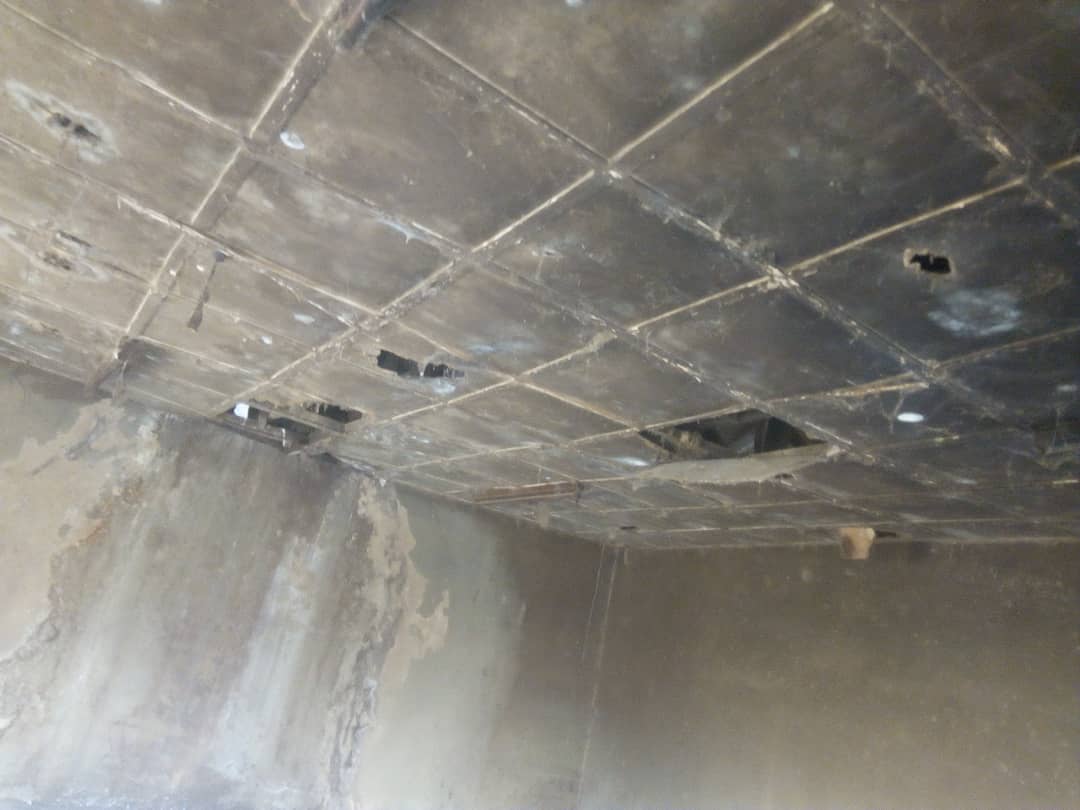
The standard practice is that patients outsource their medical prescriptions from outside the hospital. For instance, women on admission for child delivery in the facility provide every consumable required for delivery.
“This is discouraging and forcing women to opt to deliver at home. This increases the challenge of complications that endanger the lives of the women,” a midwife in one of the state hospitals lamented. Advertisement
“Sometimes they wonder why they have to come to the health facility to deliver their babies, because of the financial burden they incur and the series of delays as a result of inadequate health care providers,” she said.
Another nurse at a General Hospital in the state confided in The ICIR that “the situation is very pathetic, too much workload on us sometimes force us to make blunders which have adverse effects on patients.”
A medical doctor in one of the state’s hospital corroborated the assertion, saying, “When you sleep after work hours, you don’t want to wake up the following day because you were mentally drenched the previous day as a result of too much work.”
The doctor recalled how he made some blunders by prescribing wrong drugs on a patient meant for another patient, “because I was very tired and could not recall that the prescription I gave her was for another patient suffering from different ailments.”
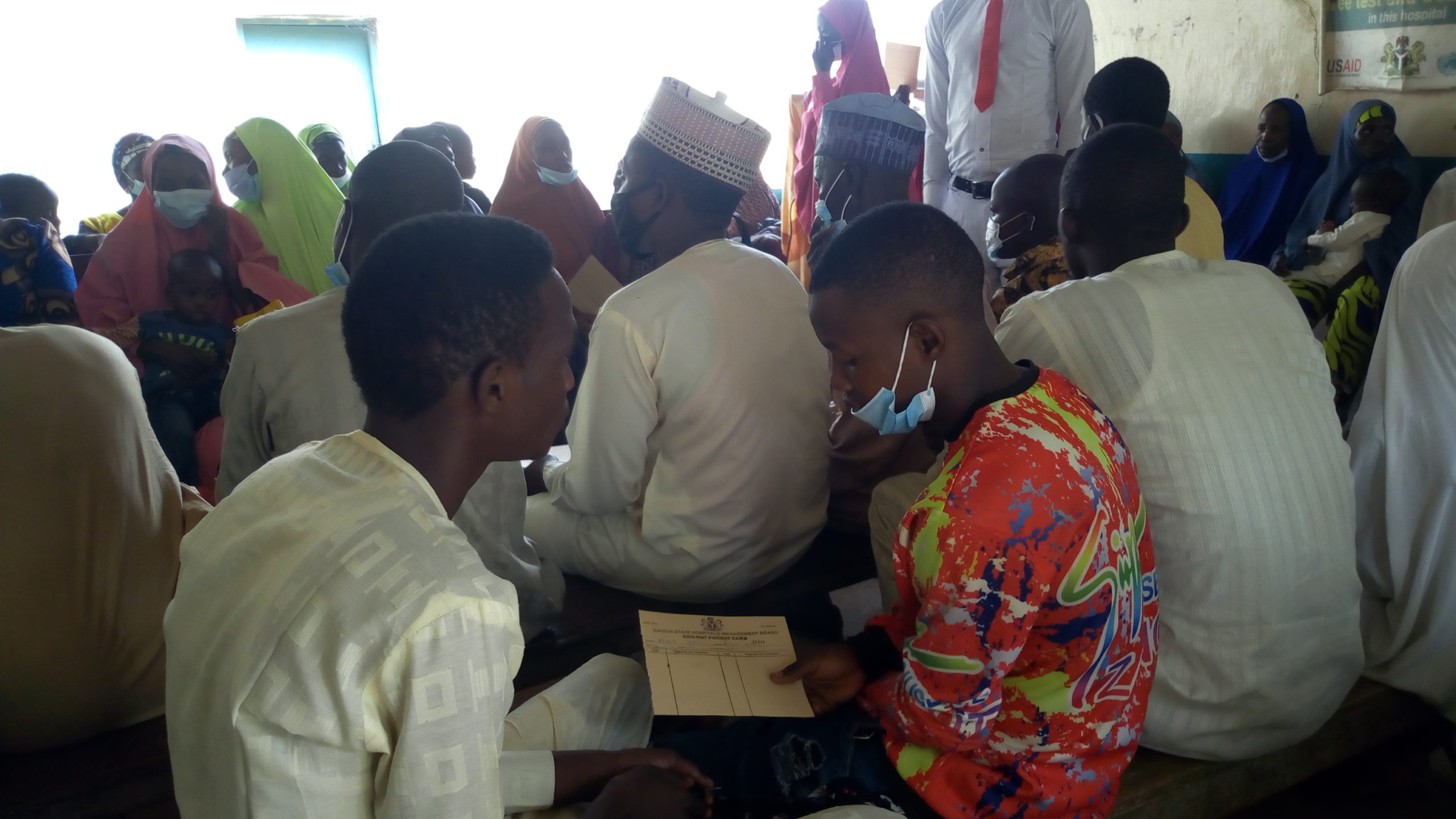
Ikram Zayd (not real name), who works with General Hospital Bayara, told this medium that he works as a staff nurse for eight hours on three shifts a week, attending to at least 20 patients on average in a day.
“It depends on the flow of patients; if there is high flow of patients you can attend to about 40 to 100 patients per day, especially when one is posted to the General Out Patients unit or Emergency Unit of the Hospital.”
The high number of patients Ikram attends to touches on the quality of service rendered to the patients because of pressure from the healthcare seekers.
The pressure of a high number of patients demands makes Ikram made a mistake while discharging his duty saying,” I fix an IV fluid on the patient admitted to the ward. Because of the flow of patients, I was rushing to attend to another patient. His relative talked to me that the fluid has been exhausted and that blood started flowing through the pipe that connects the fluid to his vein.
“I was so overloaded to the extent that I ignored him, thinking that he only needed my attention until he became angry and started shouting at me before I realized what was going on,” he said.
Sometimes Ikram feels mentally and physically exhausted, which in return affected his performance. “I feel demoralized and regret why I opted to go for nursing.”
Two Bauchi Senators Took N249 Million For Dubious Constituency Projects
In another instance, a medical doctor also recalled how in 2018, “a baby I misdiagnosed died because I was too exhausted to examine her thoroughly.”
Rape, forced marriage, domestic violence: The new normal that imperil lives of women in Bauchi
The ICIR has interviewed 40 nurses and doctors across the three senatorial zones of the State; all of whom narrated how too many workloads, inadequate equipment, lack of basic consumables at hospitals sometimes put them at loggerheads with patients; just as tendencies to misdiagnose continue to exacerbate. In the maternity wards that this reporter visited across the several general hospitals in the state, there were often no basic provisions and equipment such as delivery beds, suction machines, incubators and resuscitation machines.
A medical doctor who pleaded anonymity listed such critical equipment currently lacking in the hospital to include X-ray machine, computed tomography machine, electrocardiography, ultrasound scan, clinical chemistry machine, magnetic resonance imaging machine, haematology machines, incubators, infusion machine and pumps as lacking in the hospital where he operates.
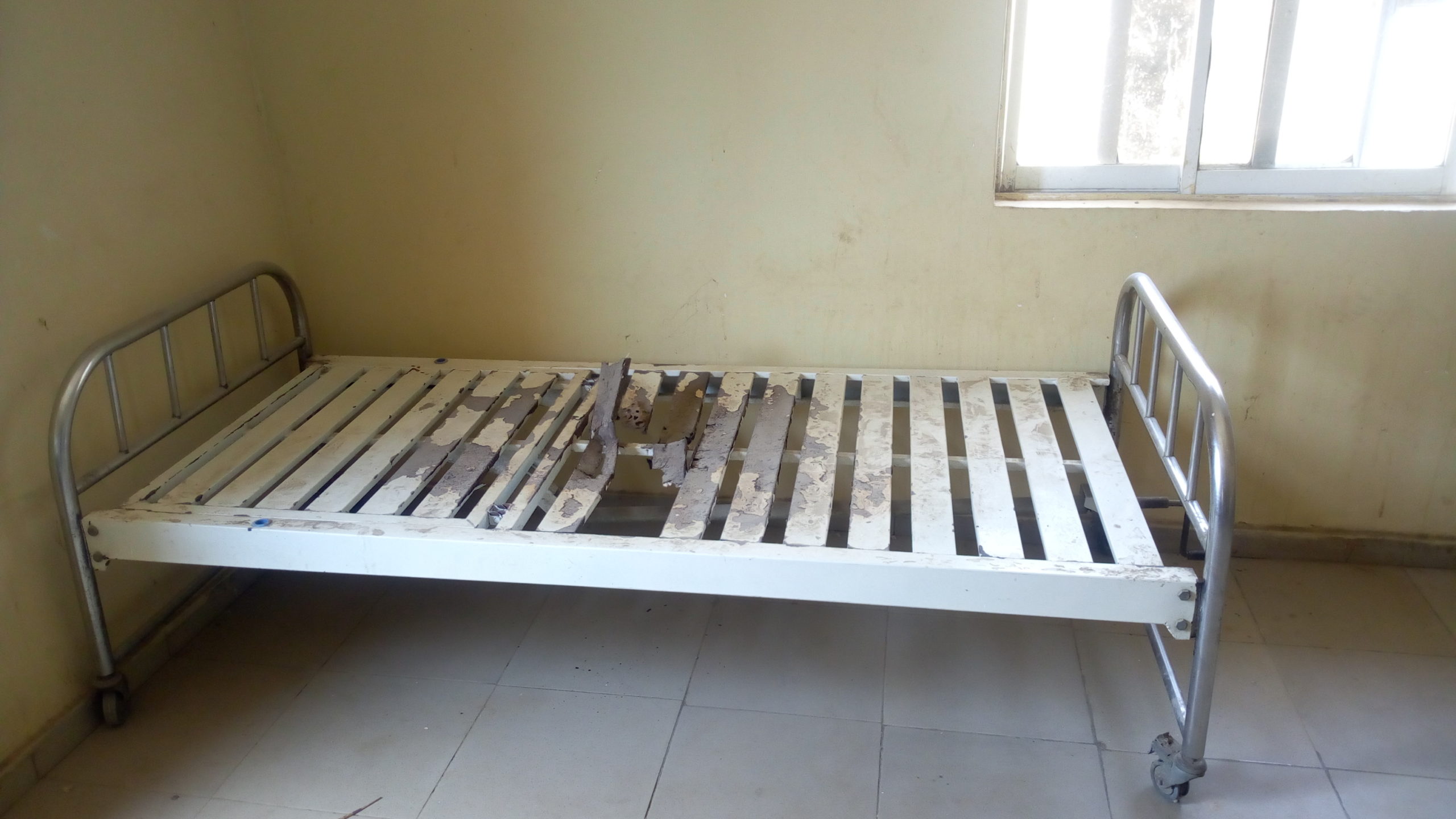
Even other items as basic as beds and couches are in very short supply in the hospital. It was almost not surprising that there are no neonatal couch, blood warmer, and phototherapy machine in the hospital. Advertisement
It is generally believed that the prevailing lack of critical requirements in health facilities in the state result in steady grave consequences for the people. However, this investigation closely analysed available data, which revealed a pattern of serious consequences on women and children’s health.
For instance, of the 113 health care facilities in Bauchi local council, 81 are designated centres for the prevention of mother to child transmission. Yet, only five were equipped for the designated service. Of the 80 health facilities offering remedies on childhood illness in Bauchi local council, only 23 met the basic supply milestone.
A medical doctor familiar with the health care system in the state confirmed that “almost all the general hospitals including the state Specialist Hospital lack some of the required medical supplies.”
In Jama’are General Hospital, the emergency unit has only one blood pressure testing machine. “We don’t have anything in the emergency unit of the hospital,” one medical personnel (kindly mention name) told this reporter.
The emergency unit has two wooden chairs. The ambulance, procured in 2008, is completely grounded. It was the same situation in all the General Hospitals visited in the course of investigating this story.
Demoralized Workforce
In the hospitals and health facilities visited, while patients voiced their frustration at the poor services rendered, staff complained of being owed salaries. One medical doctor (kindly state the name of the doctor) explained, “the high number of patients looking for the attention of few workers who are stretched and overworked is a major problem. Thorough examination of patients is hampered. This affects the quality of care, the idea of patient-centred clinical method (PCCM) becomes difficult to practice.”
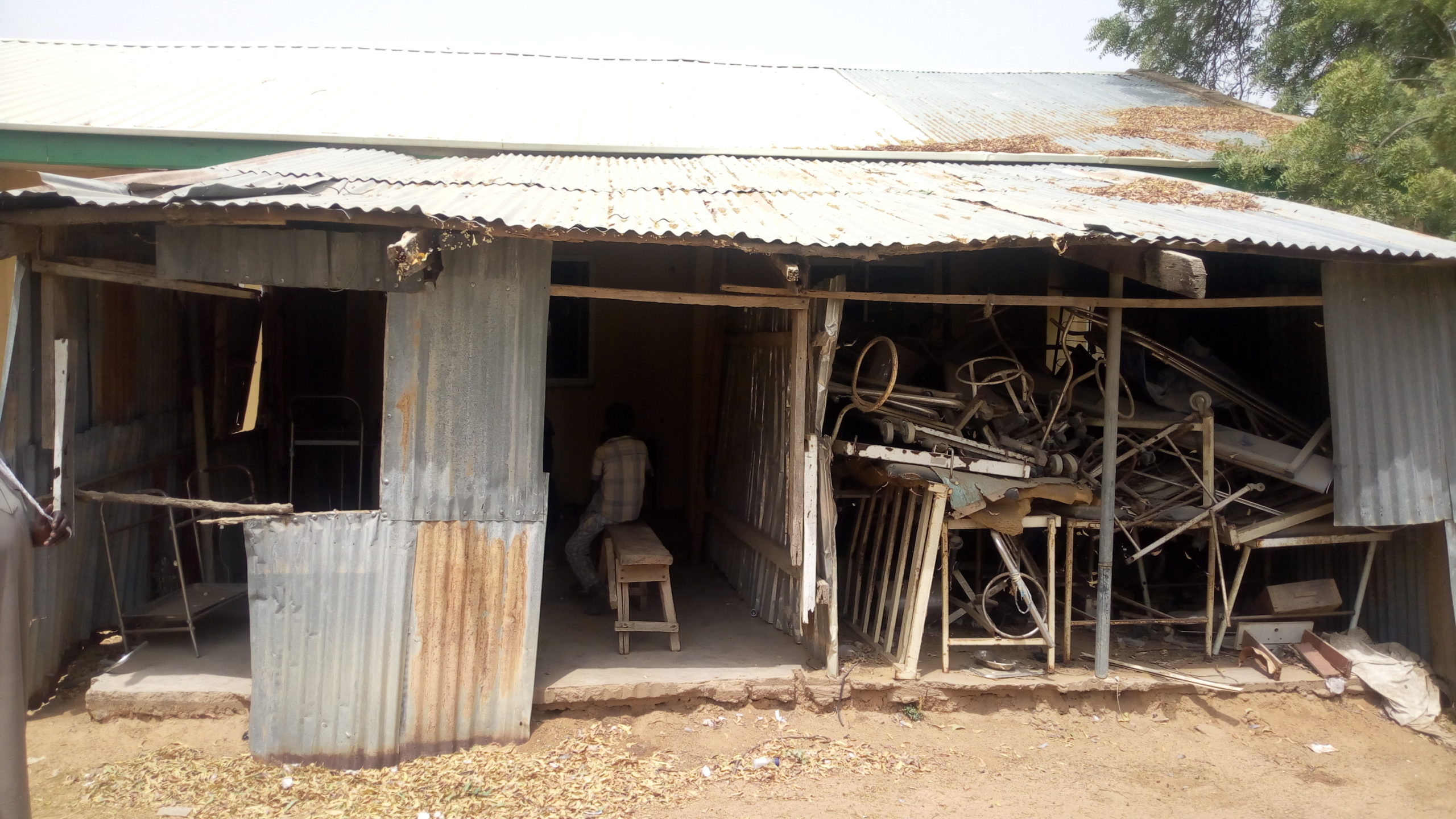
He said that doctors and nurses, on average, attend to between 30-100 patients every day, a situation he described as risky. “It is exhausting enough for one person to work for eight hours with nothing less than 100 patients. It reduces our performance and accuracy with which we deliver our work due to work stress,” the doctor added.
Many health workers who accepted to speak with our reporter off the record attributed the increasing but “avoidable mistakes” by medical personnel to inhuman and stressful working conditions prevalent in the state’s health sector.

Inadequate training for healthcare workers
Sometimes too, nurses are compelled to play specialists interchangeably to make up for the gaps caused by workforce shortage. For instance, a nurse at Boto General Hospital said she was stationed at the maternity unit of the hospital where she works “because we don’t have professional midwives”.
The ICIR’s check shows that the state’s health care workers are rarely exposed to requisite training. For example, of the 1,577 staff whose job descriptions underline a focus on ANC, none obtained the commensurate training to render such services, according to the public record shared with the reporter.
The report further called attention to the ongoing practice of assigning some of these unqualified staff rendering services on basic emergency obstetric care, another area in which none of them got the requisite training within the period under review.
The data also shows that of the 1,446 facility staff rendering services on Community Management of Acute Malnutrition (CMAM) in all the 113 clinics in Bauchi local council, only five were trained as at the first, second and third quarters of 2018, respectively.
According to the report, only five health care providers in the state have the requisite training to offer child and young infant feeding and counselling.




